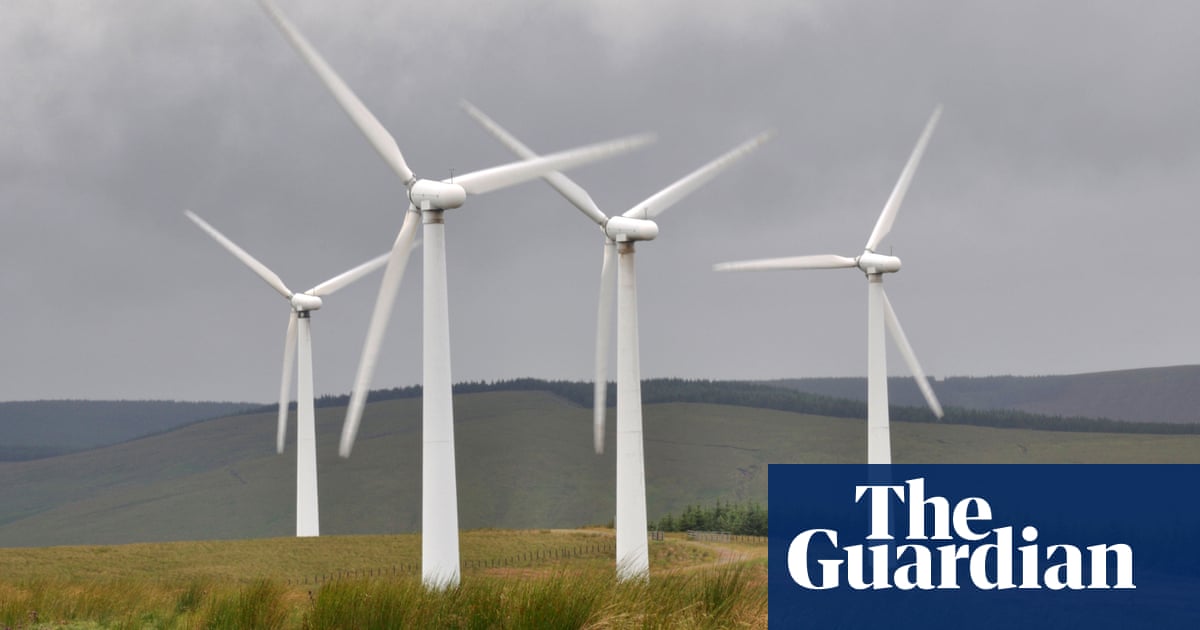
The Scottish government is in line for a windfall of almost £700m after the largest ever auction of the country’s seabed plots attracted bids from big oil and renewable energy companies hoping to build next generation windfarms.
Crown Estate Scotland has awarded oil companies including BP and Shell, and renewable energy veterans Scottish Power and SSE, permission to lease the Scottish seabed where they plan to build enough windfarms to power the equivalent of 23m UK homes a year.
The bigger than expected auction, which awarded seabed permits to 17 windfarm projects from among more than 70 bidders, is expected to kickstart Scotland’s “biggest industrial investment programme” by laying the foundation for companies to develop 25GW of offshore wind capacity.
The capacity of the new Scottish windfarms to be developed over the next 10 years will be more than double the UK’s existing 10GW of offshore wind, and equal to Europe’s current combined capacity. The UK plans to quadruple its fleet of offshore windfarms to reach 40GW by the end of the decade.
Simon Hodge, the chief executive of Crown Estate Scotland, said the results were “a fantastic vote of confidence” in Scotland’s role in the offshore wind ambitions, which will deliver almost £700m “straight into the public finances and billions of pounds’ worth of supply chain commitments”.
Crown Estate Scotland manages the Queen’s property, but unlike the crown estate – which manages property in the rest of the UK – it does not return its profits to the Treasury or the Queen. Instead, the revenues are handed to the Scottish Consolidated Fund, which in turn finances the Scottish government.
The winning bidders have also promised to invest about £1bn in sourcing materials and services from Scottish supply chain companies for every 1GW of offshore wind capacity built, which could put local firms in line for £25bn of investment.
Scottish Power, owned by Spanish energy conglomerate Iberdrola, emerged as the auction’s single largest winner after scooping up seabed rights to develop up to 7GW of offshore wind capacity alongside its partners – enough to power 8.5m UK homes.
The company plans to develop two large-scale floating projects in partnership with Shell, a 3GW windfarm off the north-east coast of Scotland and another 2GW project off the east coast, as well as its own 2GW fixed offshore windfarm off the coast of Islay.
Keith Anderson, chief executive of Scottish Power, said the latest auction would drive new investment in the energy industry and its supply chain “particularly in areas like the north-east”, which could open up “immense opportunities for businesses and institutions across the country”.
“This is a colossal investment opportunity which could make this the biggest industrial investment programme in history for Scotland,” he told the Guardian. He added that the shift towards floating offshore windfarms off Scotland’s coast opened “massive opportunities” for universities and technology innovators to play a leading role in “the first industrialisation of floating offshore wind” in the world.
More than half the winning bids came from developers hoping to build floating offshore windfarms, which can be located further from the coastline and capture the power of faster offshore wind speeds.
SSE Renewables plans to partner with Japanese conglomerate Marubeni and Danish fund manager Copenhagen Infrastructure Partners to develop one of the world’s largest floating offshore windfarms off the east coast of Scotland.
Bernard Looney, chief executive of BP, which won with a bid for a traditional fixed-base offshore windfarm, said the company would develop its 2.9GW project 60km off the coast of Aberdeen in partnership with the German energy company EnBW.
Louise Kingham, BP’s UK boss, told the Guardian that its role in the UK’s offshore wind industry would help to lay the foundation “for the next 100 years” in Scotland’s energy industry.
“There’s been a lot of thought about how to develop the wind industry in Scotland, and how you build a [wind power] supply chain alongside decommissioning the oil and gas industry. There are some very transferable skills here,” she said.
Melanie Onn, deputy chief executive of RenewableUK, said the auction would be “a massive economic boost for the whole country at just the right time”. “These projects will attract billions of pounds from private investors, which will create thousands of skilled jobs and allow us to maximise supply chain opportunities all around the UK,” she added.












